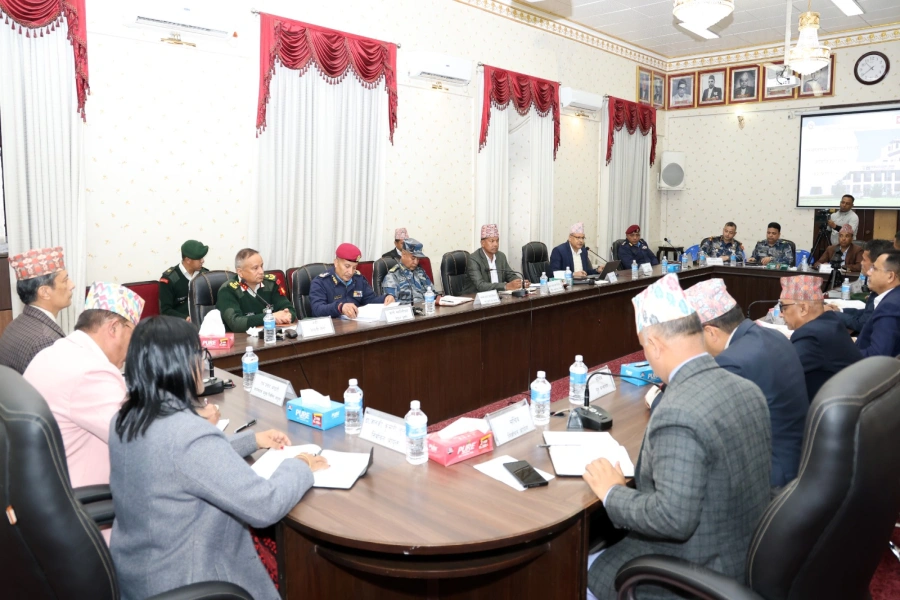In an earlier article for this daily (19 October), I highlighted the on-going dispute between Marwari Sewa Samiti (MSS) and Pashupati Area Development Trust (PADT). Two developments have taken place since. One, the Ministry of Tourism directed the PADT to withhold its agreement with KMC to contract out the Gaushala property until PADT’s scheduled meeting on 20 October. Two, the Patan High Court issued a short-term stay order and called relevant parties for a consultative meeting. In view of the court order, the Ministry postponed its meeting until the October 20 meeting and formed a six member committee to study the problems and suggest appropriate measures within a month. These developments could be taken as cease-fire measures. In this write-up, I will dwell on the underlying principles of dispute resolution.
First, the parties to the dispute must realize that there are no legal solutions to the problem. Legal solutions only complicate the problem. Invariably, the court can establish rights of the parties, and define which side is right and which wrong. Such categorization will be of little help,other than turning the dispute into a win-lose, zero-sum game, only helping to add fuel to the fire. Even the word “right” implies two meanings – the legal rights and moral rights, the latter suggesting the correct things to do.
Second, searching for a durable, amicable – meaning, acceptable to both sides – and relatively low cost solution must look for a win-win solution for all stakeholders, including the government. and the society at large.
Third, there are some common grounds where disputants have some degree of agreement. And these common grounds provide a foundational stone for resolving disputes. These include:
Both parties to the dispute agree that Pashupatinath is the legitimate owner of the land. The MSS agrees that it has occupied the land for the last 84 years, purely for philanthropic activities though such activities have considerably expanded and diversified as per the demands of the situation.
Will Major General Pandey step down amid age dispute?

It would be totally absurd to suggest that the prime property at Gaushala should be used only for protecting cows, supplying milk and sheltering stray cows and bulls, as in the good old days.
The annual MSS grant of Rs 51,000 to the PADT, from 2060 BS onwards, is, definitely, a paltry sum in the present day context, given the commercial value of the holdings. Both parties agree on revising this figure but there is disagreement over the amount to be revised.
Based on these points, the disputants need to draw a fresh broader contract agreement, encompassing the one they signed two decades back. This approach would help heal the past wounds and contain all possible contingency measures. The CIAA directive, also endorsed by the court, to have a time-bound agreement and revising annual grant does address some legitimate concerns of the parties.
Fourth, a more flexible approach to the problem can be arrived at by un-bundling the concept of property rights. There are three rights when it comes to the issue of property rights: the right to use; the right to abuse and the right to fructuous. Since its inception, the MSS has used its right to use or manage Gaushala property. The right to abuse or destroy the property rests with the PADT or, ultimately, with the government. Let's be clear that the MSS holds no right to abuse. Out of blue, the MSS cannot rescind, close or withdraw managing Gaushala property. It has legal and moral obligations to operate that property. Finally, the right to fructuous or sharing and distribution of fruits seem to be the most contentious issue here.
A judicious dispute resolution mechanism must look for distributing these three sets of rights, interestingly, among three parties, namely, the MSS, the PADT and the Government.
As the MSS holds rights to use, even a forceful eviction requires payment of due compensation as the present property had to be developed to this stage by the efforts and contributions of the MSS. The MSS claim for a “tenancy rights” emanates from this fear of forceful eviction.
Remember, that tenancy rights are, in fact, mean the rights to use while the right
to fructuous implies the tenant holds the right to cultivate and have a share in the crops or produce.
The rights to abuse squarely rests with the government via PADT. The rights to abuse needs to be defined carefully to include development and modification of Gaushala property. It should not be limited to closure or suspension of activities whatever may be the rationale.
The final fructuous rights should clarify revenue and expenditure streams, distribution of surplus and measures to cover deficits.
Since this is the most contentious issue, this right needs careful definition as well as distribution among the concerned parties to the dispute. Definitely, the MSS is a philanthropic body, possibly operating on break-even points. I suppose, much of the problem can be resolved through the introduction of the modern day performance contracting system.
In the realm of managing public sector bodies, there are three other evolving practices. The first one is to enact legal codes. When this does not work, another measure is to fix targets and incentives, as mentioned in the performance contracting system. The third and final measure is to change actors. One can see this analogy to the game of football. The performance of the game can be enhanced by either changing rules or designing incentive structures or changing the players themselves.











-1200x560_20210819165745.jpg)




























